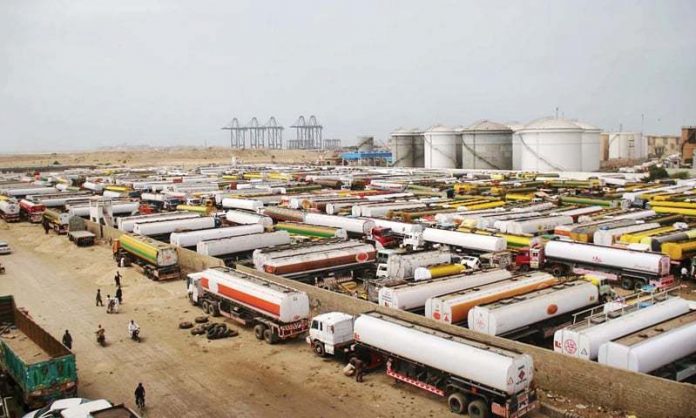CHITRAL: The protesting oil tankers have resumed supply to hilly areas after the government accepted their demands and agreed to enhance the freight rates for the hard access areas of Azad Jammu and Kashmir, Gilgit Baltistan and Chitral by 30 per cent.
As the government has agreed for revision of oil tankers’ freight rate for the hard areas, therefore All Pakistan PSO Carriage Contractor Association (APPCCA) has decided to end the week-long strike immediately, APPCCA General Secretary Nauman Ali Butt said told media.
The consensus was reached here at a meeting with OGRA Chairperson Uzma Adil with the representatives of APPCCA.
It was decided to review the cost of elements, other than HSD after every two years. It was also agreed upon that during this period APPCCA and oil tankers owners will ensure no strike of tankers for any further revision.
APPCCA will propose the detention and idling charges for loading and unloading delays for the consideration of the authority for fixing the same for the oil tankers in consultation with the oil industry.
It is pertinent to mention here that on December 18, oil tankers stopped supply for hilly areas of AJK, GB and Chitral, demanding revision for oil tankers’ freight rates.
Meanwhile on October 25, at a meeting between officials of the Petroleum Division, OGRA, APOTA and OTCA, the regulatory body upward revised the fares for oil transportation and allowed an increase of 19.7 per cent to 63.93 per cent in fares of different slabs of oil transportation.
However, Nauman Ali Butt said that the 30 per cent increase will only be applicable to the oil tankers providing fuel to hard areas. He said that the proposal regarding the increase in rate will be forwarded to the petroleum division for approval. The new freight rates will be applicable from January 1, 2018, he added.




